S h a r e
The 10 electric vans with the best range
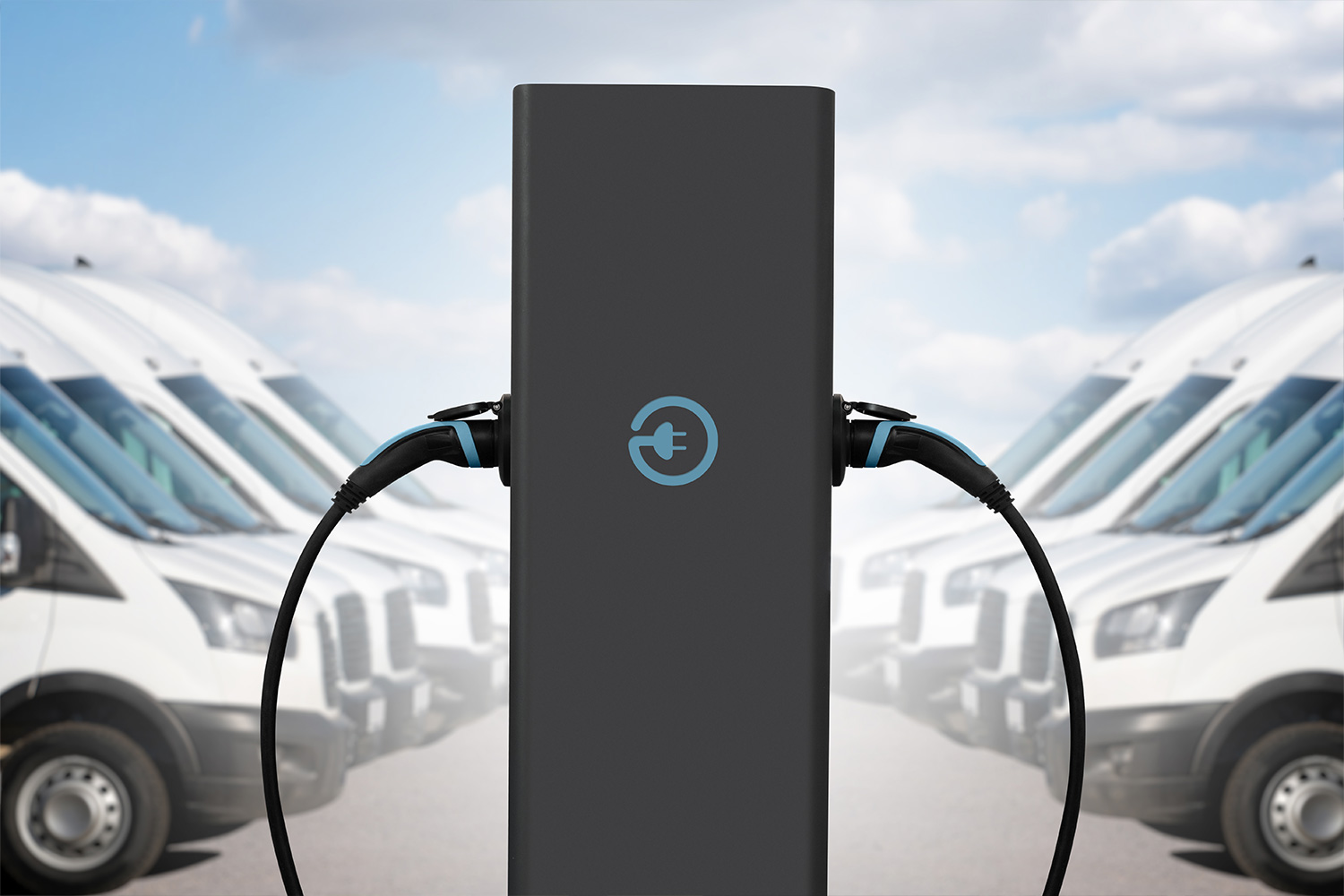
Posted by
Charlie Strand
July 2024
The electric van market is beginning to keep pace with electric cars; there’s a host of new models every year, and some new manufacturers alongside the traditional brands.
This choice also extends to the size and type of electric vans (eLCVs), from car-based city vans to the traditional panel van. Different lengths, heights and door configurations are similar to petrol/diesel vans and the good news is that because this new generation of electric vans was designed from the ground up, the batteries sit below the floor and don’t leave you shortchanged on interior load space.
While the driving range on a full charge will not match a diesel van with a full tank of fuel, for many city-based delivery vans a long range isn’t an issue, and urban air quality (Clean Air Zones) is.
As sustainability becomes an increasingly important factor to fleets, the ability to deliver goods with zero emissions is essential. And understanding the eLCVs that can provide the operational efficiency to minimise charging downtime during the day is critical.
Once more, we’ve gathered together the top 10 vans with the greatest maximum range, as stated by the manufacturers using the official combined WLTP figure. However, it’s best to view this as a starting point to compare them. The maximum range on a single charge can vary hugely depending on load, driving style and the outside temperature. Unlike a diesel van an eLCV consumes far more on motorways than in town.
Before the top 10, it’s worth noting that government plug-in grants are still available for eligible vans. Small vans qualify for a £2,500 discount and large vans for a £5,000 discount.
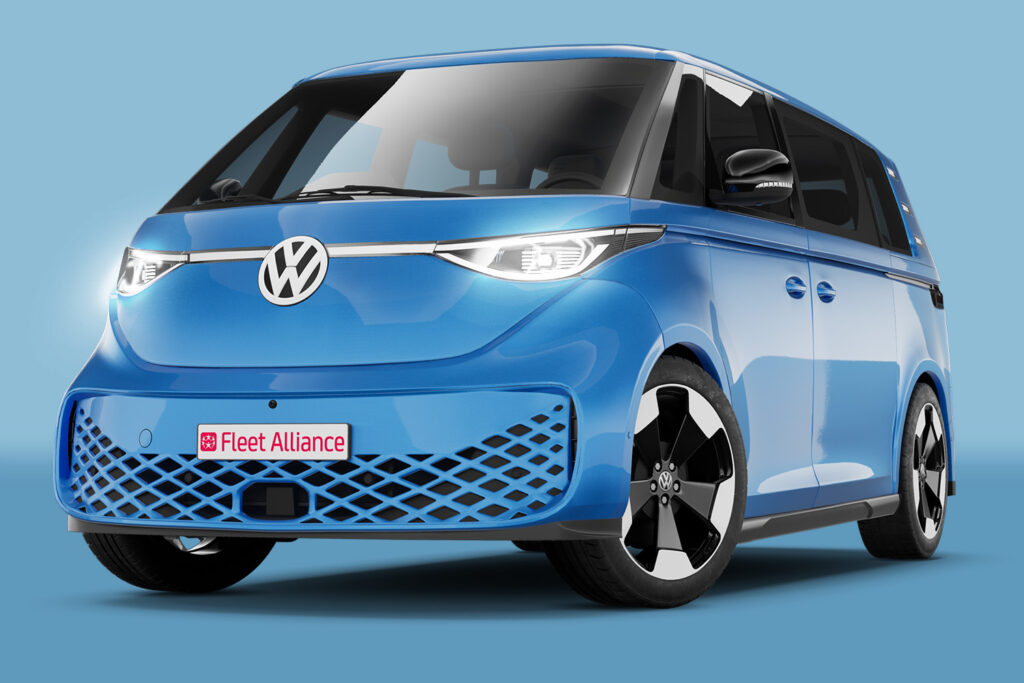
VW ID. Buzz Cargo – 254 miles
Hey dude, electric vans can be cool! If you turn up in a two-tone Volkswagen ID.Buzz it should give your company some street cred. Company car and private drivers have lapped up the electric re-invention of the classic Volkswagen Microbus, but as a pure van it’s equally appealing, especially in two tone paint.
The ID. Buzz Cargo is designed to be a hard-working van, able to fit two euro pallets side-on, and has twin sliding doors as standard. The 77kWh battery can be topped up to 80% at an ultra-rapid 170+kW charger, in less than half an hour.
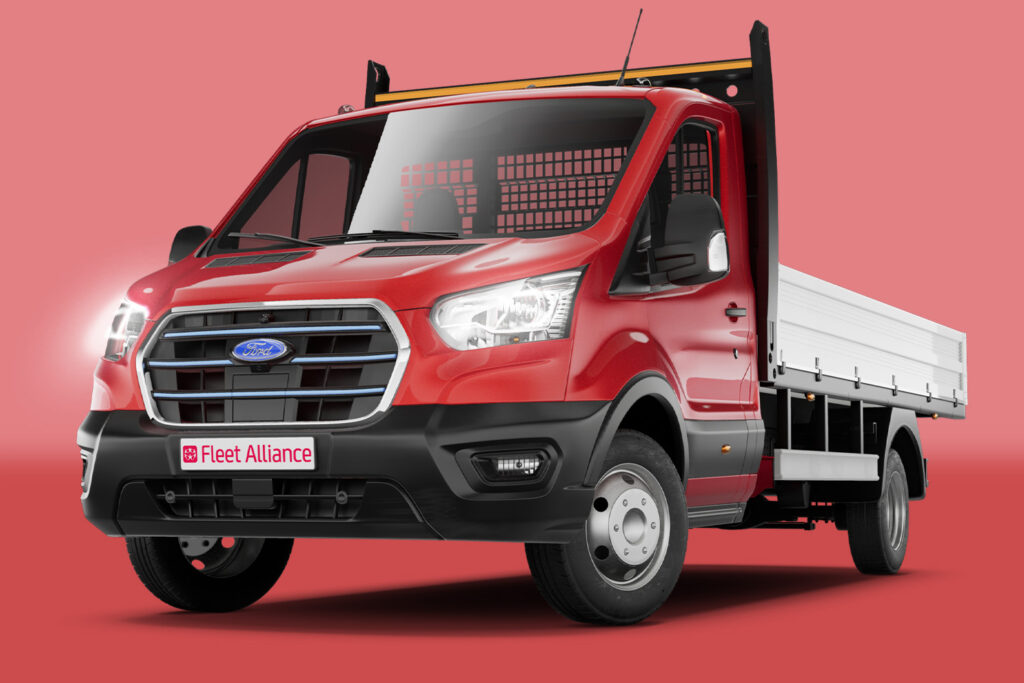
Ford E-Transit Extended Range – 249 miles
Available to fleets for the last two years, the big brother to the E-Transit Custom has up to 15.1 cubic metres of space as a panel van and 25 different body variants (there’s also an E-Transit minibus now).
For 2024 Ford Pro has introduced an extended range option of the E-Transit with a 89kWh battery, extending the range 28% further – up to 249 miles, with faster AC and DC charging and the new heat pump as standard. The E-Transit extended range variants can take up to 1,460kg for vans and 1,814kg for chassis cab variants.
The standard E-Transit has a payload of 1,758kg, which is impressive for an electric model, and can travel 196 miles on a charge. It will take about half an hour to charge on 115+kW ultra-rapid points.
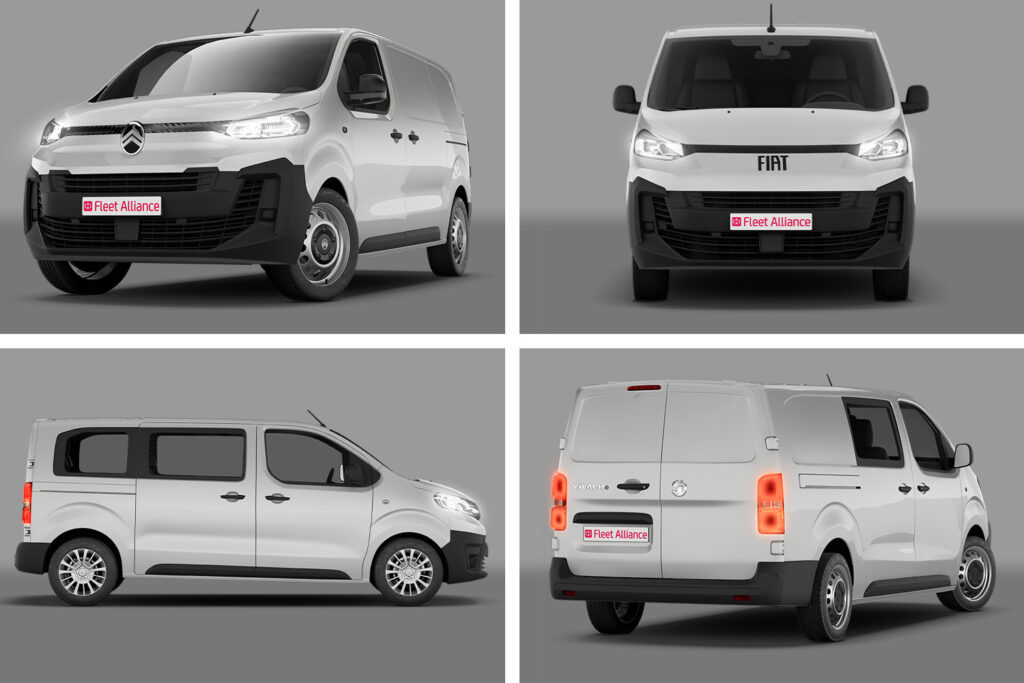
Citroën e-Dispatch / Fiat eScudo / Peugeot e-Expert / Toyota Proace Electric / Vauxhall Vivaro Electric – 217 miles
This group is effectively the same van from Citroën, Peugeot, Vauxhall, and Fiat because all these brands are part of the Stellantis Group and share the same van platform; non-Stellantis automaker Toyota also shares the van and offers it as the Proace with a choice of 50kWh battery and the 75kWh battery used by the Stellantis group.
That’s the background; here’s more detail. Late in 2023 the best-selling Vauxhall Vivaro Electric gained the latest Vauxhall ‘Vizor’ front-end styling. The interior gained updated infotainment with a new 10in touchscreen.
The price went down and the Vivaro Electric range went up to 217 miles (along with the other Stellantis vans), an increase of 12 miles over the outgoing model. The battery size remains 75kWh and can be recharged from 5%-80% in 45 minutes at a 100kW public charging station.
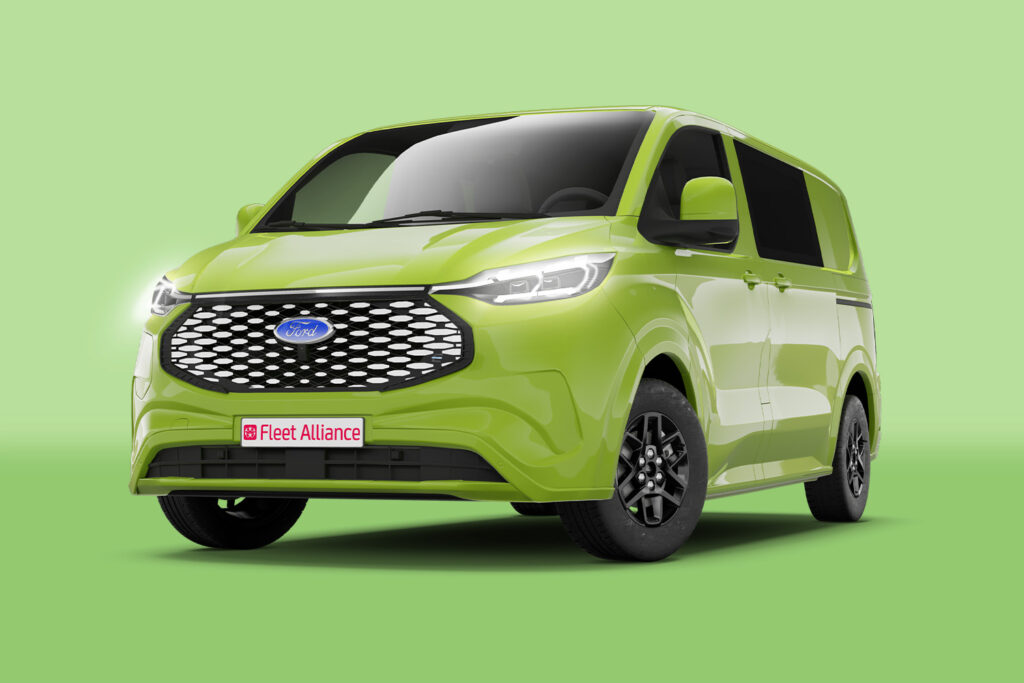
Ford E-Transit Custom – 209 miles
The Ford Transit E-Custom could be the van to galvanise a significant switch to eLCVs, such is the legendary status of the Transit Custom and its popularity with both sole traders and company fleets.
Every E-Transit Custom is fitted with a 64kWh battery for a maximum driving range of up to 209 miles. Ford claims the E-Custom is the first-ever electric vehicle to use vapour-injected heat pump technology to heat and cool the cabin, fitted as standard to all vehicles.
If you specify the Pro Power Onboard system, this provides up to 2.3kW for electric tools, lights, laptops, or other devices. The Transit e-Custom has two-year unlimited distance service intervals and a payload up to 1,011kg.
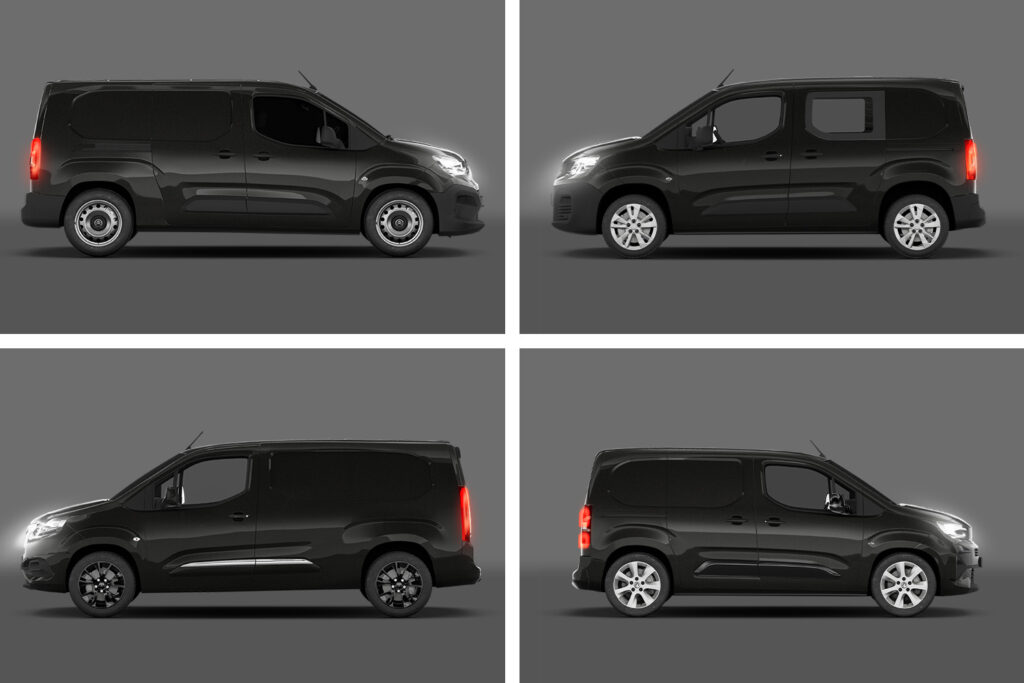
Citroën e-Berlingo / Peugeot e-Partner / Toyota Proace City Electric / Vauxhall Combo-e –205 miles
This collection is the small electric van from the Stellantis Group with different badges, and again with a Toyota version. They come in two lengths, with medium models measuring 4.4m long, and long variants 4.75m. All versions are 1.90m high, and a maximum payload of 803kg is on offer.
And they’ve gone up the charts since 2023! With efficiency improvements, the official maximum combined range has gone from 171 to 205 miles and the vans have had an updated front end, although Vauxhall claims the Combo Electric can do 211 miles on a charge. All these compact eLCVs get a 52kWh battery and 100kW electric motor.
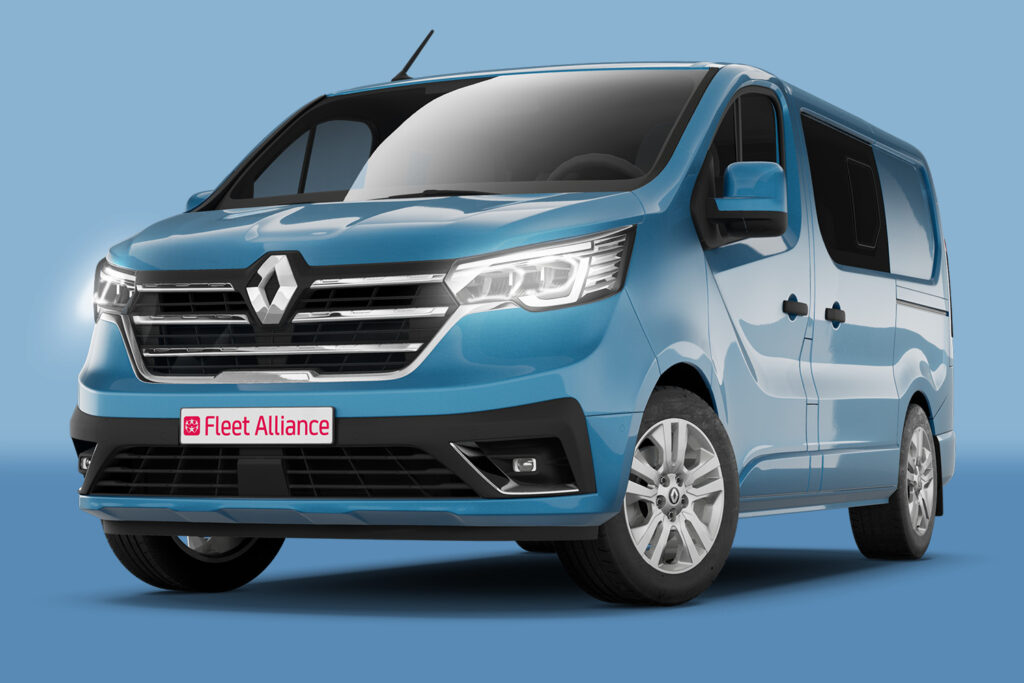
Renault Trafic E-Tech – 186 miles
The Renault Trafic and the Vauxhall Vivaro were once the same vans with different badges, but this changed in 2019, when the Vivaro went to an all-new platform, which it doesn’t share with Renault. The new Renault Trafic E-tech can now be ordered in the UK, with the first customer deliveries expected to begin in September 2024.
Three versions are available with a choice of two body lengths and two heights. Load space that ranges from 5.8m3 to 8.9m3. The 52kWh battery can take rapid DC charging up to 50kW to fully recharge the battery from flat in an hour. A Mobile Office is standard, made up of a folding table with detachable A4 clipboard and laptop storage.
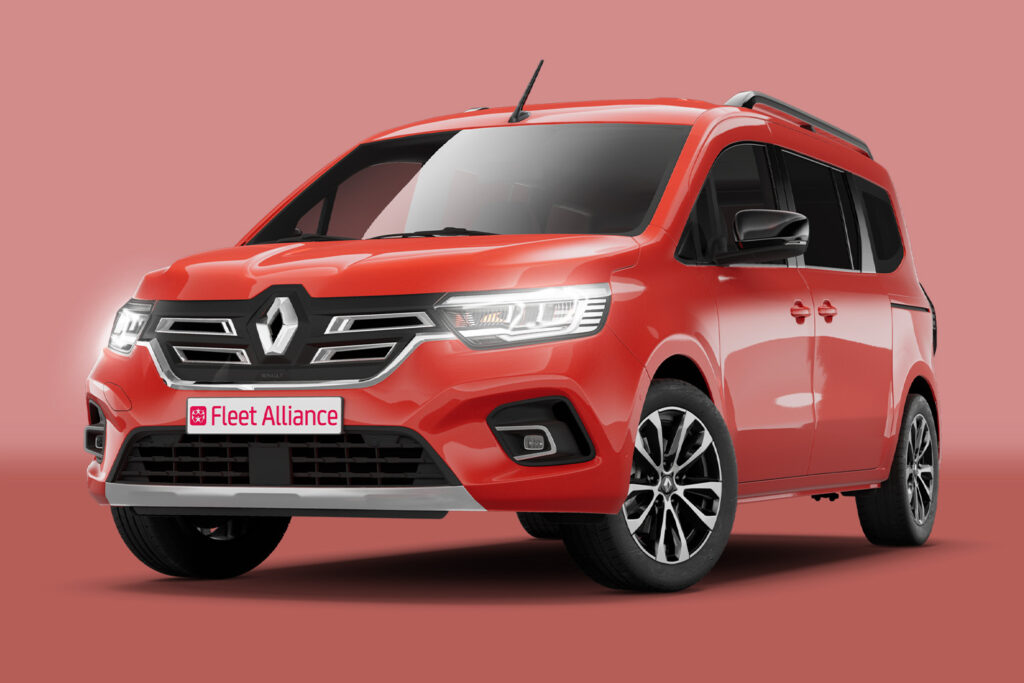
Renault Kangoo E-Tech – 186 miles
Renault’s electric Kangoo has been available as an E-Tech version since 2022, and a range of up to 186 miles on a charge is still impressive for a small van. It’s now available in two versions (L1 and L2), with a loading volume up to 4.9 m3. Its 22 kW 80 DC charger can use rapid chargers that provide 80% of the battery in around 27 minutes.
Kangoo E-Tech models have automatic air conditioning, a heated front windscreen, heated seats, and a heat pump which can pre-warm the cabin. Renault’s Easy Inside Rack allows long items to be stored internally rather than on an external roof rack, which helps security and range.
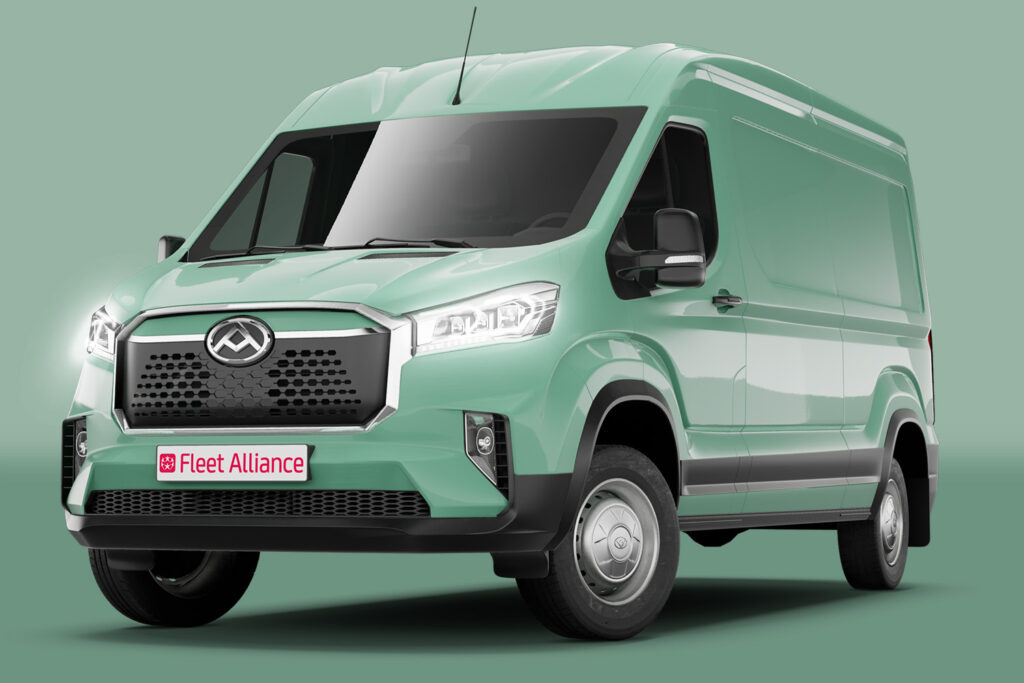
Maxus eDeliver9 – 185 miles
It might not be a household name, but Maxus electric vans have been carving out a reputation for choice of body styles and sizes and long charge ranges. The e-Deliver9 is a panel van in Ford E-Transit territory, and unusually offers three battery sizes, 51.5kWh, 72KwH and 88.5KwH, so you can tailor your van to its daily usage and payload. In the city the 88.5kWh model claims up to 219 miles WLTP.
All models are powered by a 150 kW electric motor and will support AC and DC charging – the latter providing up to 80% charge in less than an hour. Equipment is good, with parking sensors and a rear camera as standard.
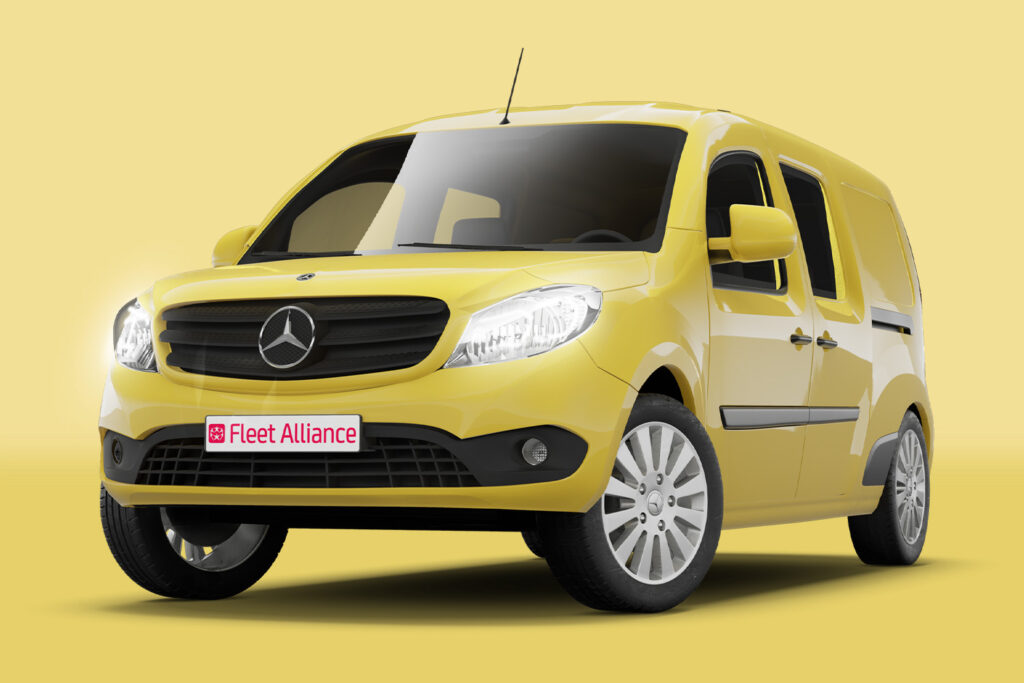
Mercedes-Benz eCitan – 176 miles
Introduced to the UK late in 2023, the Mercedes e-Citan small electric van was co-developed with the Renault Kangoo e-tech and Nissan Townstar but differs as it has a different cabin which has the Mercedes MBUX touchscreen infotainment system you’ll find on the cars. It also now comes in a long-wheelbase version.
The eCitan has a shorter range than the Renault from its 45kWh battery, with a payload of 544kg. The lithium-ion battery can be recharged (10-80%) in 38 minutes with the standard 75 kW DC charger.
And finally…
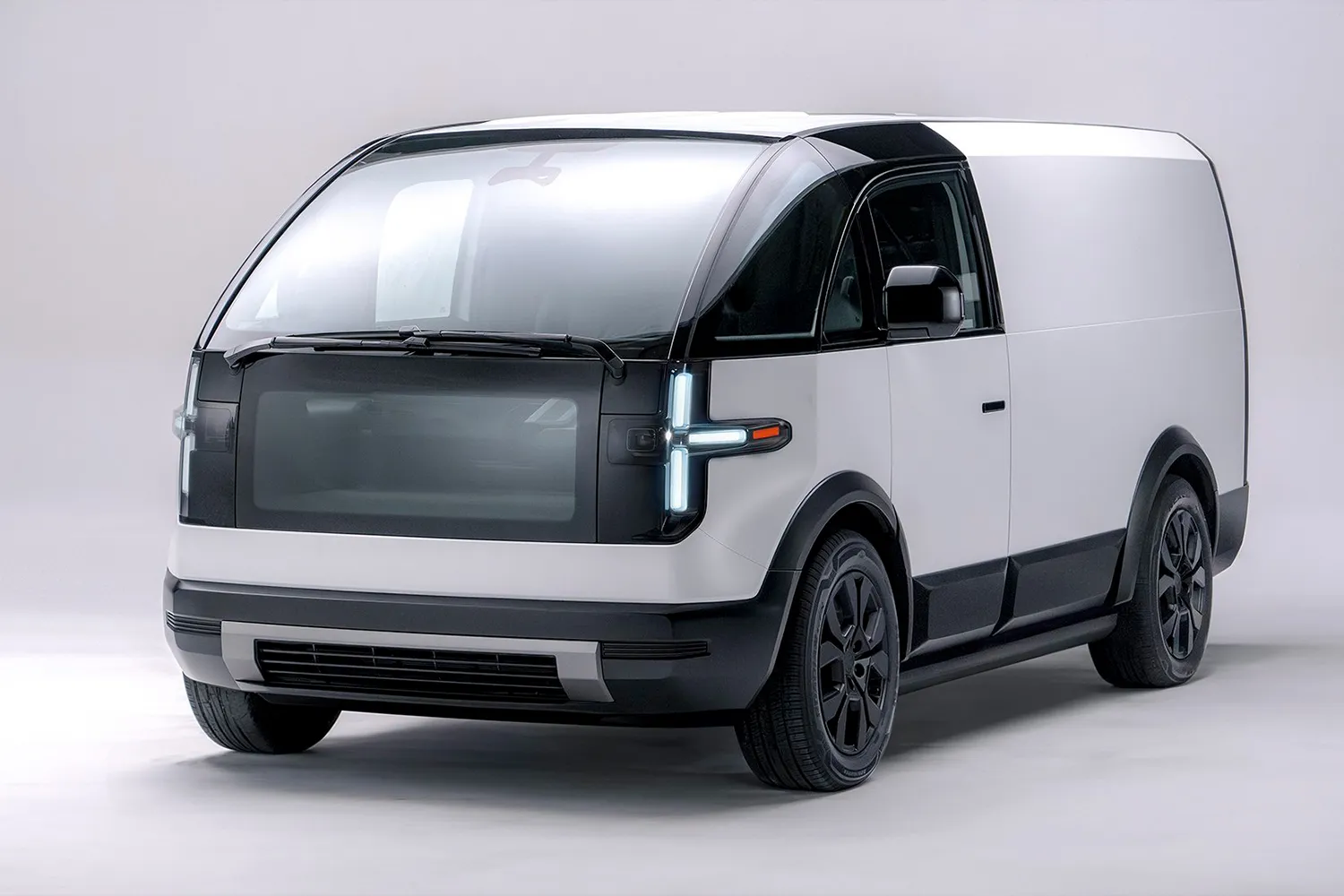
Canoo
if you want funky futuristic style the American brand Canoo may be launching in the UK later this year. Californian-built with ‘pod’ styling which can be configured into vans, people carriers and event pick-ups. It almost looks the same whether it’s coming or going and has a 200-mile plus range
While Canoo is largely unknown in the UK, in America thousands are in use with Walmart and a special right-hand drive version has been engineered for the US postal service, which also sets the Canoo up nicely for UK drivers.

